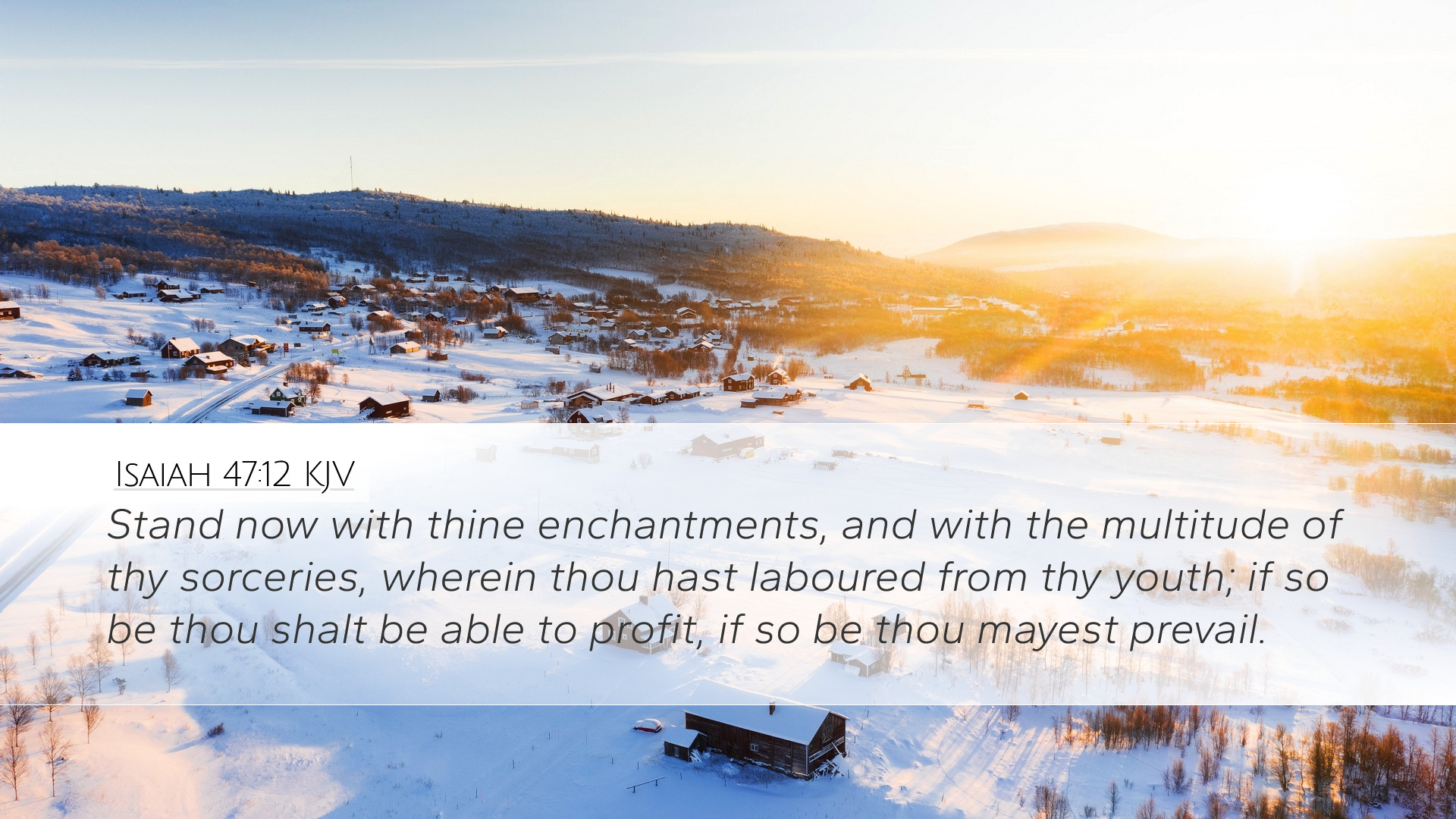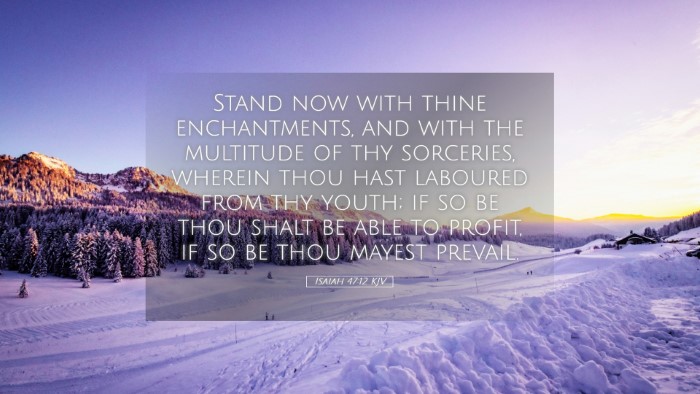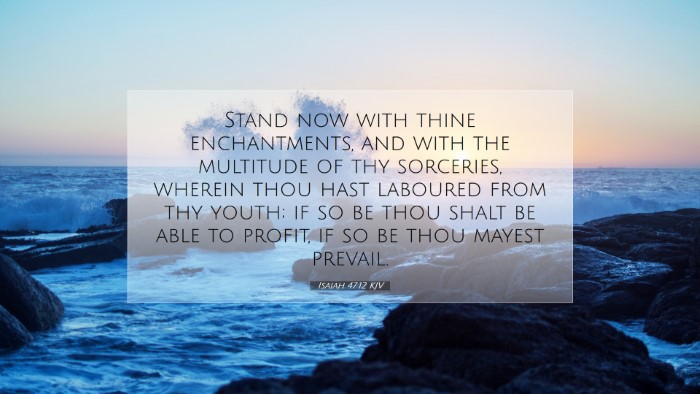Commentary on Isaiah 47:12
Isaiah 47:12 states:
"Stand now with thine enchantments, and with the multitude of thy sorceries, wherein thou hast labored from thy youth; if so be thou shalt be able to profit, if so be thou mayest prevail."
Introduction
This verse encapsulates a powerful message concerning the futility of relying on sorcery and enchantments for deliverance. In the context of Isaiah's prophetic ministry, this verse speaks to the people of Babylon, exposing their over-reliance on magical arts and idolatry in their oppression and eventual downfall.
Contextual Background
In the book of Isaiah, the prophet delivers messages of both judgment and hope. The preceding chapters lead up to a declaration of judgment against the prideful and idolatrous nations, with Babylon being a primary focus.
Historical Context
Babylon represents not only a geographical location but a symbol of human pride and rebellion against God's authority. It was known for its rich tapestry of magical and occult practices, which played a significant role in its culture and beliefs.
Verse Analysis
Call to Action
The phrase "Stand now with thine enchantments" serves as a challenge to the practitioners of sorcery and magic. The use of "stand" suggests a posture of boldness and confidence in their abilities, which is ultimately an ironic twist given the futility of such practices.
Futility of Sorcery
Both Matthew Henry and Albert Barnes opine that this call for standing with enchantments highlights the impotence of false gods and magical arts. These substitutes for divine power and wisdom stand no chance against the true Sovereign of the universe.
Laboring from Youth
"Wherein thou hast labored from thy youth" refers to the sustained devotion Babylon had towards its enchantments. This not only depicts a chronological witness to their pagan practices but also serves as a critique of their misplaced trust.
Theological Implications
Isaiah 47:12 invites theological reflection on the nature of human reliance on spiritual deception rather than faith in God. The contrast drawn here is between the eternal God and the transient powers of sorcery.
Human Effort vs. Divine Sovereignty
Adam Clarke observes the contrast between human endeavor and divine authority, emphasizing that no amount of human effort—including reliance on the mystical or occult—can prevail against God's plan.
Practical Applications
- Faith Over Fortune: This verse encourages believers to seek the true power of God rather than the temporary allure of worldly or spiritual shortcuts.
- Hope in Judgment: For pastors and students, this message also holds a promise; even amidst judgment, God’s ultimate purpose ensures ultimate restoration for His people.
Conclusion
Isaiah 47:12 serves as a sobering reminder of the consequences of idolatry and reliance on false gods. The prophetic voice of Isaiah challenges both ancient and contemporary hearers to examine the foundations of their faith.
Ultimately, while Babylon's practices may have been sophisticated, they are no match for the all-powerful God. Scholars and theologians can glean deeper insights from this verse, recognizing that trust in God transcends the superficiality of human knowledge.


